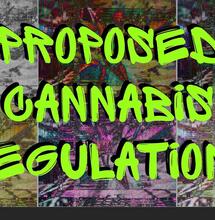Cannabis taxation: a win-win all round, Richard Branson tells MPs

Virgin boss appears before Commons committee to argue for regulation of drug and diversion of resources to crime-fighting
Virgin boss appears before Commons committee to argue for regulation of drug and diversion of resources to crime-fighting
The market for cannabis in Britain should be regulated and taxed, and responsibility for drug policy moved from the Home Office to the health department, Sir Richard Branson has told MPs.
The Virgin Group head said the 20% of police time and £200m spent on giving criminal sentences to 70,000 young people for possession of illegal drugs in Britain each year would be better spent going after the criminal gangs at the centre of the drugs trade. "It's win-win all round,'' he told the Commons home affairs select committee.
Asked about his personal history of drug use, Branson replied: "I would say 50% of my generation has smoked cannabis. I would say 75% of my children's generation has smoked cannabis ... If I was smoking cigarettes, I would be very worried."
He said that in his own Virgin companies he did not think staff who were found to be taking drugs should be dismissed but instead treated as having a problem, and helped. "There are many people in companies with drink problems or smoking problems," he said.
Branson was part of a global commission on drug policy, which includes five ex-presidents and Kofi Annan, the former United Nations secretary general. The body concluded last year that the war on drugs had failed and called for experiments in decriminalisation.
He was the first witness at the Commons home affairs inquiry into drug policy.
Branson argued that the policy of switching responsibilty for drug policy from the Home Office to the health department had worked in Portugal, where nobody had been jailed for using or possessing drugs in the last 10 years.
Portugal was the only country that had decriminalised all drugs. As a result of treating drug users rather than imprisoning them, he said, heroin use and heroin-related deaths had fallen by more than 50%.
In Britain, 100,000 young people a year were arrested for drug offences, and 75,000 of them were given criminal records, which meant they had problems in later life in travelling to some countries, he said.
"If next year those 100,000 people are not prosecuted for taking drugs, but they are helped, I think the commission would welcome Britain doing that."
He said if the sale of cannabis and other drugs were regulated and taxed, then the quality of what was being taken could be controlled. He contrasted the lack of deaths in Portugal with the recent deaths of three teenagers in Britain from taking tablets they wrongly thought were ecstasy, citing the fatalities as an example of the consequences of failing to regulate the illegal market.
The Virgin chief admitted he had not read the UK Home Office drug policy statement, which emphasises diverting drug users from prison, but said the 100,000 arrests each year were evidence the policy was not working in practice.
Pressed by some Conservative MPs on the committee to come down on one side or the other in the debate over methadone maintenance versus abstinence, Branson said he was no expert, and it was for the MPs to establish what worked best.
http://www.guardian.co.uk 24/1/2012



